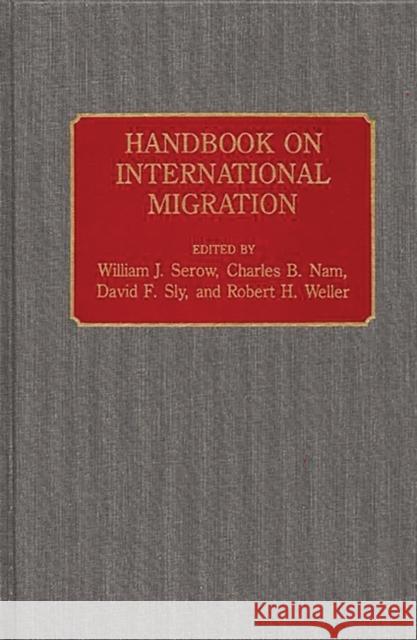Handbook on International Migration » książka
Handbook on International Migration
ISBN-13: 9780313261176 / Angielski / Twarda / 1990 / 400 str.
This volume presents 19 national case studies of international migration. . . . The authors of these well-written, detailed, but nontechnical chapters have complied with the editors' request, thereby yielding a number of general observations that appear to hold across these diverse countries. "Choice"
Immigration, the most difficult of all the demographic processes to document accurately, has the most immediate impact on a nation's demographic structure and the essays included in this volume provide a useful overview of the immigration process as it is currently structured. In order to facilitate transnational comparisons, each contributor has adhered to a common outline which includes historical setting, legal policies, types and quality of data, major international migrations, demographic effects of international migration, social and economic effects of international migration, and public policy issues. The future of international migration is also assessed.
The individual chapters are devoted to case studies of immigration in a variety of national settings. Included are chapters dealing with the principal receiving nations of permanent immigration; countries where immigration consists mainly of short-term imported labor; countries receiving an influx of persons from former colonial territories; countries where immigration is based on religious factors or which are destinations of refugees; and countries whose history as a colony influences current immigration and emigration patterns. Additional chapters address economically advanced countries and also focus on some of the principal sending nations of current international population flows. Offering insights into the economic consequences of migration from the perspectives of both sending and receiving nations, assessing the overall impact of immigration, and detailing the contributions of immigrants, Handbook on International Migration is an important resource for public policymakers and those who must be cognizant of the economic and demographic situation of other nations.











